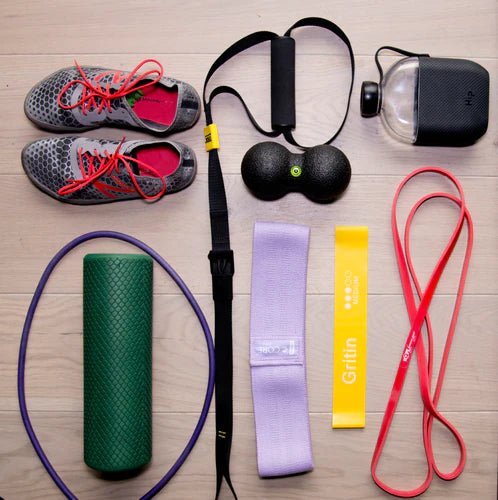As much as we here at 35 Thousand try to see the glass as half full, sometimes it's not always easy. You can't underestimate how much we have all been through in recent years, so it's perfectly normal if you aren't seeing things through the rose-tinted lenses in the way you used to.
Whether you're on a mission to be more positive this year, you naturally tend to see the glass half empty and your normal pep talk isn’t enough to turn your mood around, then it’s time to call on the experts instead.
Here’s how to hack that negative voice and always find the blue skies behind the grey clouds, even if you can’t quite see them yet.
The Business Psychologist: Jan de Jong, Founder of People Business Psychology
(Jan has created the following positivity tips in association with online glasses and eyesore store Feel Good Contacts)
Have a healthy relationship with the news
Let’s be honest, the majority of the news doesn’t always make for pleasant reading/viewing. However, many of us feel it’s essential we watch it in order to stay informed of events. According to Jan de Jong, it’s important to find a balance between being informed and being overwhelmed. “Try to limit stressors,” he explains. “It's important that you consume news in a healthy way. Limit news consumption to set times during the day and preferably not when you should be relaxing, e.g. during meal times or at bed time.”
Recalibrate your priorities
The problem with feeling overwhelmed is that we tend not to see things clearly. In crisis mode, it's easy to head full steam ahead in all areas of our lives in a bid to attack it or charge through it. However, De Jonge says it’s actually better to take a step back and ask ourselves if we are prioritizing the wrong things. “Are you working too many hours? Have you said 'Yes' too often and too easily? Have you booked up all your available time? Is everything important? Chances are you feel stressed and alienated from those close to you,” he says. In order to address this, he suggests recalibrating your priorities and reviewing how much time you spend on each habitual activity and scaling back the ones that aren’t so important. “You and those around you will be happier for it,” he says.
Limit screen time
Today, our screens are as present in our work lives as they are in our home lives. As a result, our work and home life are becoming increasingly blurred says De Jonge. “Try to limit your screen time when you’re not working,” he says. “We all know how bad it can be for our health. Also, stress and sleep don’t mix, so it’s important to use the time before you go to bed to de-stress. Reduce your exposure to screens in the hours leading to bedtime. The blue light emitted from screens disrupts your sleep-wake cycle and can lead to wakefulness and lower quality sleep.”
Get off to a good start
When we hit the snooze button in the mornings, we tend to be late and end up stressed, shouty with clothes on we don’t like. De Jonge suggests we “Get up a little earlier, drink water and do some exercise. Prepare your breakfast without relying too much on processed food. Get some fresh air and try to absorb some natural daylight – it will help you sleep better. Decide which eight to ten tasks you would like to do today and make sure you accomplish the four or five most important tasks on that list. After all, tomorrow is another day.”
Stretch like an animal
While so many of us focus on being fit, De Jonge says that stretching is just as important. “The multi-million-pound yoga industry is built around it,” he says, “and animals understand this better than humans do. To wake yourself up after (hopefully!) having had a good sleep or sitting down for a long time, we get ready for movement and work by automatically stretching our body. It’s what’s called 'natural pandiculation:' yawning, stretching your arms, arching your back, making yourself as stretched out as possible after first tensing your muscles. Try to become more aware of your own body by contracting your muscles, stretching out slowly and then releasing… it’s relaxing.”
www.peoplebusinesspsychology.com
The life coach and mentor: Susie Pearl, life coach, podcaster, author and cancer survivor

Make time for good nutrition
In times of stress it becomes all too easy to forget about eating well and just grabbing convenience and processed foods. However, this isn’t doing us any favors whatsoever, when in fact we should put making good, nutritious food at the top of our priority lists. Susie Pearl says, “Drop the sugar, eat light and healthy, prepare nice meals for yourself and family. Make this this year the year you learn a couple of new recipes.” If you think making your own food takes too long, then follow Susie’s advice: “I have a rule that recipes have to be less than 20 mins or I am not doing it. Plan meals, eat balanced foods, avoid toxic intakes, try to avoid overdoing the alcohol, fizzy drinks, and sugar which will give you a false high and bring you back to earth with a bump.”
Get some routine
Ever since COVID-19, the lines between work and home life have become somewhat blurred. Susie says, “Being at home means there is no structure to the day.” Her solution? To work out a plan and rhythm for your day and map it out.
“Get ready for the day time,” she says “With a meditation or a walk outside in nature if you can. Plan the structure of mealtimes, rest time, work time, children time, social online time, so that you get some variety and balance through the days.”
Next, Susie recommends planning in some fun things. “It could be partying and dancing with some friends online – whatever it is, keep the energy up and do what you like doing, even if that’s on your own.”
Don’t take on too much
Sometimes we have days when all we achieved was unloading the dishwasher and sending a few emails, and you know what? That’s ok. “Set small goals and feel you have made good strides. It's not always time to overachieve," says Susie.
Have strong boundaries
If you're going through difficult times then it's important to be decisive – if you can’t have that hour long conversation with your best friend, it’s fine to tell her you’ll chat another time. If your boss asks for that presentation by tomorrow, tell them it’s not possible. “Whether it’s with work, family or friends, be clear on what is possible and what's not,” says Susie. “Don't feel bad about saying no to things. More than ever think carefully about what you say yes and no to.”
The neuropsychologist: Mara Klemich, founder of Heartsyles.com

Know that mindfulness is magic
“Mindfulness approaches are really helpful in tough times,” says Mara, who helped front line medical workers get through the unprecedented, tough times of COVID-19. “Practicing stopping and just noting one thing to be grateful for, no matter how small, is helpful to kick-start our thinking back into the positive,” she says. Her examples are as follows: “I love my sofa – sitting on it is so comfortable,” “I’m grateful for my neighbor who says hello through the fence/sends me a WhatsApp message to see how I’m doing,” or “I’m grateful for my plant/the trees in my garden or the bunch of flowers I bought at the supermarket.” Treasure the small things.
Ask ’What is my true North?’
“When you have those times of feeling overwhelmed or you’re experiencing negative feelings – stop, take a couple of breaths and think, “What’s my True North?” says Mara. By this she means what is it that is the essence of you, that truly matters to you. “What I usually find is that it’s a main value I have, or Love. Whatever it is, stop and think about it, see it/feel it and take two breaths to anchor it in your mind and heart. This can help shift us back into positivity, or if not fully, then certainly it can conjure up some energy to keep you going.”
www.heartstyles.com
The clinical psychologist: Dr. Seth J. Gillihan, PhD, LLC – Head of Therapy for self therapy app Bloom
Find mental moments of stillness
It’s important to check in with yourself throughout the day and remember who you are rather than charging through everything mindlessly. Dr. Seth Gillihan says, “Let dark or anxious thoughts recede into the background as you find a closer connection with what’s real around you. What do you see? What do you hear? What do you feel in your body? Choose an activity throughout the day as a cue to remind you to come into the moment. Examples include waiting in line at the grocery, being stopped at a red light, washing your hands, eating at mealtime, or getting ready for bedtime.”
Practice the bedtime recap
One way of putting the positives at the forefront of your mind and building that positivity muscle is to write them down. Dr. Gilliham says, “Put a pen and paper next to your bed so they’ll be waiting for you when you go to bed tonight. Before you turn off the light, write down three things that went well today. Make sure to include the role you played in them and why they went well. Allow these good things to fill your mind as you drift off to sleep.”

Bloom is a self-therapy app that uses personalized video sessions to help users cope with stress, anxiety and depression.
Don’t let the world get you down. If you enjoyed reading this, then why not max out the rest of our beauty, wellbeing and self development articles in Edit 35.



